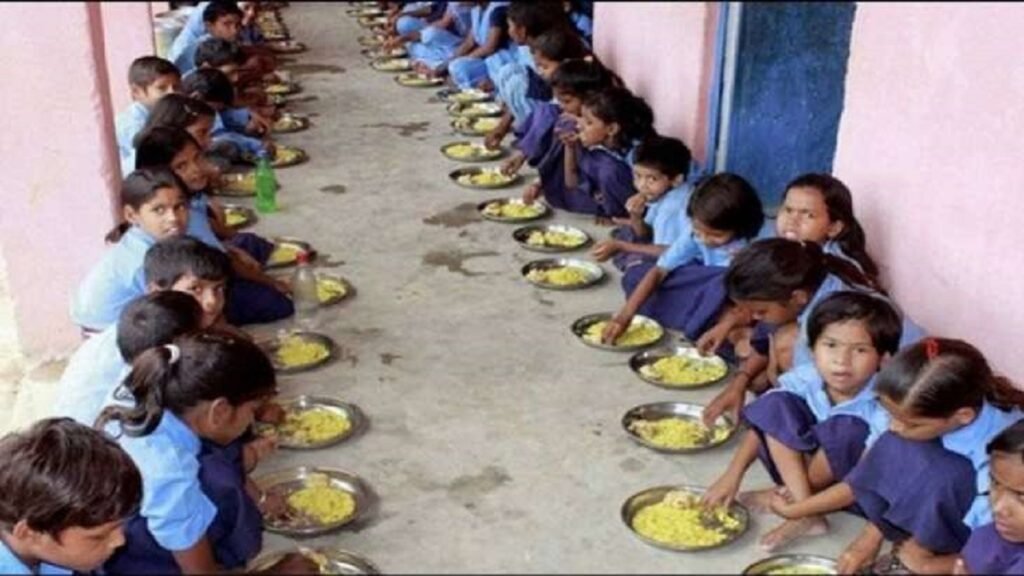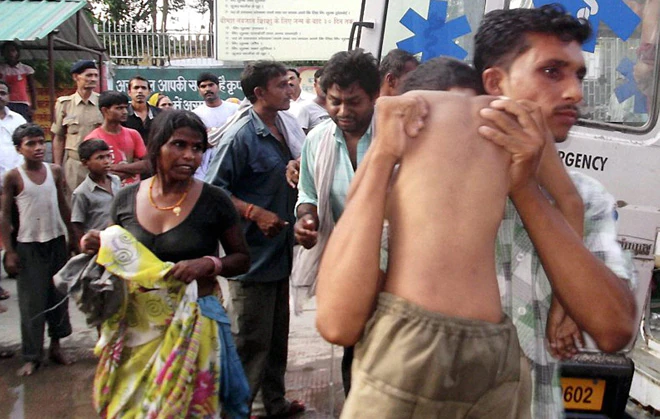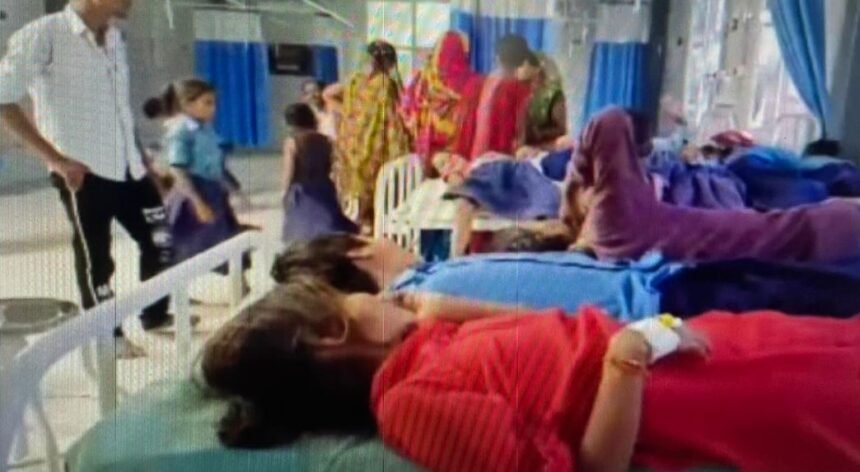In recent news, a shocking incident has unfolded in the heart of Bihar’s Sitamarhi district, sending ripples of concern throughout the nation. Fifty innocent children, brimming with youthful energy and aspirations, found themselves in dire straits after consuming a mid-day meal provided by their school. This unfortunate incident has not only raised questions about the safety of our children but has also shed light on the need for stringent quality control measures in our school meal programs.
The Disturbing Events Of Bihar Unfold
On a seemingly ordinary day, children from a local government school in Sitamarhi were eagerly awaiting their mid-day meal – a program aimed at providing them with a nutritious lunch. Little did they know that this meal would soon turn into a nightmare. As they savored their meals, it became evident that something was terribly wrong. The innocent laughter soon gave way to cries of distress and discomfort.
The Immediate Response

The school authorities, alert to the sudden distress of the children, acted swiftly. The affected students were rushed to the nearest healthcare facilities, where they received immediate medical attention. Doctors and healthcare workers worked tirelessly to stabilize the children and diagnose the cause of this mass illness.
The Cause of Concern
The initial investigations revealed that the children’s symptoms were consistent with food poisoning. The source of contamination appears to be the mid-day meal they had consumed earlier in the day. Food samples from the meal were collected for thorough analysis to determine the exact cause and to prevent any further spread of the illness.
Ensuring Accountability
In the wake of this distressing incident, the spotlight has turned towards the responsible authorities and stakeholders. Questions regarding the quality of food procurement, storage, and preparation have come to the forefront. It is essential to hold accountable those responsible for ensuring the safety and well-being of these young minds.
The Importance of School Meal Programs

ALSO READ:Narendra Modi Age: Biography & Facts
Mid-day meal programs play a pivotal role in our education system, not only providing nourishment but also encouraging enrollment and regular attendance. However, incidents like these remind us of the critical need for robust quality control measures to safeguard the health of our children.
The Way Forward
In the face of adversity, it is imperative that we learn from our mistakes and take concrete steps to prevent such incidents from recurring. The following actions are crucial:
1. Stringent Quality Control
Authorities must implement rigorous quality control measures at every stage of the food supply chain. This includes sourcing, storage, preparation, and distribution.
2. Regular Inspections
Regular and surprise inspections of food storage facilities and kitchens should be conducted to ensure compliance with safety standards.
3. Staff Training
Proper training of school staff involved in meal preparation is essential. They must be educated on food safety and hygiene practices.
4. Transparent Communication
Parents and guardians should be kept informed about the sources of the food provided to their children. Transparent communication builds trust.
5. Emergency Preparedness
Schools must have well-defined emergency protocols in place to respond swiftly to any health crises.
Community Vigilance
One of the most critical aspects of ensuring the safety of our children in schools is community vigilance. Parents, guardians, and community members should actively participate in monitoring the school meal programs. This can be achieved through:
6. Parental Involvement
Parents and guardians should take an active interest in their children’s school activities, including meal programs. Regular communication with school authorities can help identify and address issues promptly.
7. Reporting Mechanisms
Establishing clear reporting mechanisms for parents and students to raise concerns about food quality and safety is vital. Anonymity should be maintained to encourage reporting without fear of repercussions.
Government Accountability
Government agencies responsible for overseeing school meal programs should also be held accountable for their actions. This includes:

8. Transparent Audits
Regular audits of school meal programs by independent bodies can provide insights into their functioning. Transparency in audit reports should be ensured.
9. Policy Revisions
Government policies regarding food safety and school meal programs should be periodically reviewed and updated to incorporate the latest safety standards.
Nutrition Education
Beyond ensuring food safety, it’s essential to focus on the nutritional quality of the meals provided. Proper nutrition is crucial for the overall health and development of children. This can be achieved through:
10. Nutritional Awareness
Incorporate nutrition education into the school curriculum to teach children and their families about the importance of a balanced diet.
11. Diverse Menu Options
Offer a variety of healthy menu options that cater to different dietary needs and preferences.
The Resilience of Our Children
Despite the unfortunate incident in Bihar’s Sitamarhi, it’s heartening to see the resilience of the affected children and their determination to continue their education. Their bravery should inspire us to take collective action to ensure their safety and well-being.
In conclusion, it is incumbent upon all stakeholders – parents, schools, communities, and government authorities – to come together and prioritize the safety of our children. The incident of 50 children falling ill is a wake-up call, and we must ensure that such incidents become a thing of the past. Through vigilance, accountability, and education, we can create a safe and nurturing environment for our children to thrive in.
As a society, let us reaffirm our commitment to the well-being of our youth and work tirelessly to protect their health, dreams, and aspirations.
ALSO READ:According to Pew Research, Prime Minister Narendra Modi is seen favorably by 80% of Indians




































